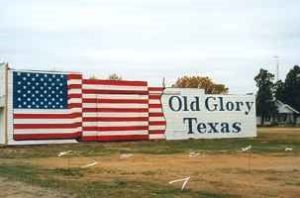Russian Germans are also known as Volga Germans, but what in the world do they have to do with anything I write about? Well, they are terribly interesting and some ended up in numerous little villages in North Texas. Maybe you have eaten at Muenster or Lindsey on Highway 82 going to Wichita Falls. Absolutely delicious food. But not to be confused with the Eastern Europeans who located between San Antonio and the Gulf Coast during the Republic of Texas. More great food but different histories.
Between 1762 and 1763 Catherine the Great invited them to Russia to settle and introduce their advanced German agriculture methods to rural Russia. They were promised by the manifesto of their settlement several surprising rights. They were allowed to practice their respective Christian denominations, retain culture and language and allowed immunity from Russian taxes and military conscription for themselves and their descendants.
As time passed the Russian monarchy gradually eroded rights of the ethnic German populations, especially military conscription. About the same time, the Canadian and U. S. governments realized there was a long stretch of land from Saskatchewan southward to North Texas that was sparsely inhabited. It was the treeless high plains of North America. Few farmers were interested or trained in agricultural skills to farm the region. At that point Canada and the U. S. made the same offer Catherine the Great made to the so-called Russian Germans who accepted and began migrating here in the 1890s.
By 1900 some 100,000 Russian Germans lived on the High Plains. As immigrants do when most of the original land is taken, the Russian Germans descendants began to drift southward into Kansas, Colorado, Oklahoma and Texas.
By 1904 a group of these Russian Germans, now calling themselves German Americans, settled between Double Mountain Fork and the Salt Fork of the Brazos River, five miles from the Haskell county line in eastern Stonewall County. They laid out the site for a town they named Brandenburg, but only a schoolhouse and general store were constructed. When the railroad arrived in 1909 it bypassed Brandenburg two miles west. So the Brandenburg residents moved over to the railroad, constructed a new town that they named New Brandenburg. This was a common solution everywhere west of the Mississippi River and maybe even east of the great river.
As Germany went to war with France, Russia, and Great Britain, the residents of New Brandenburg became slightly uneasy. As the war wore on, their fears increased. When the U. S. declared war on Germany, New Brandenburg residents agreed it was time for a new name: Old Glory. It became official in 1918 and today proudly honors the American flag all over the remaining village.
However, the fine folks in Old Glory were not the only German descendants who struggled because of the war. Even the descendants whose ancestors arrived in the Republic of Texas experienced fear and persecution during that time period. They were harassed during both World War I and World War II, even though thousands of their men served in the wars; they bought war bonds, and supported the U. S. war efforts. Hopefully such prejudice has been eradicated.

